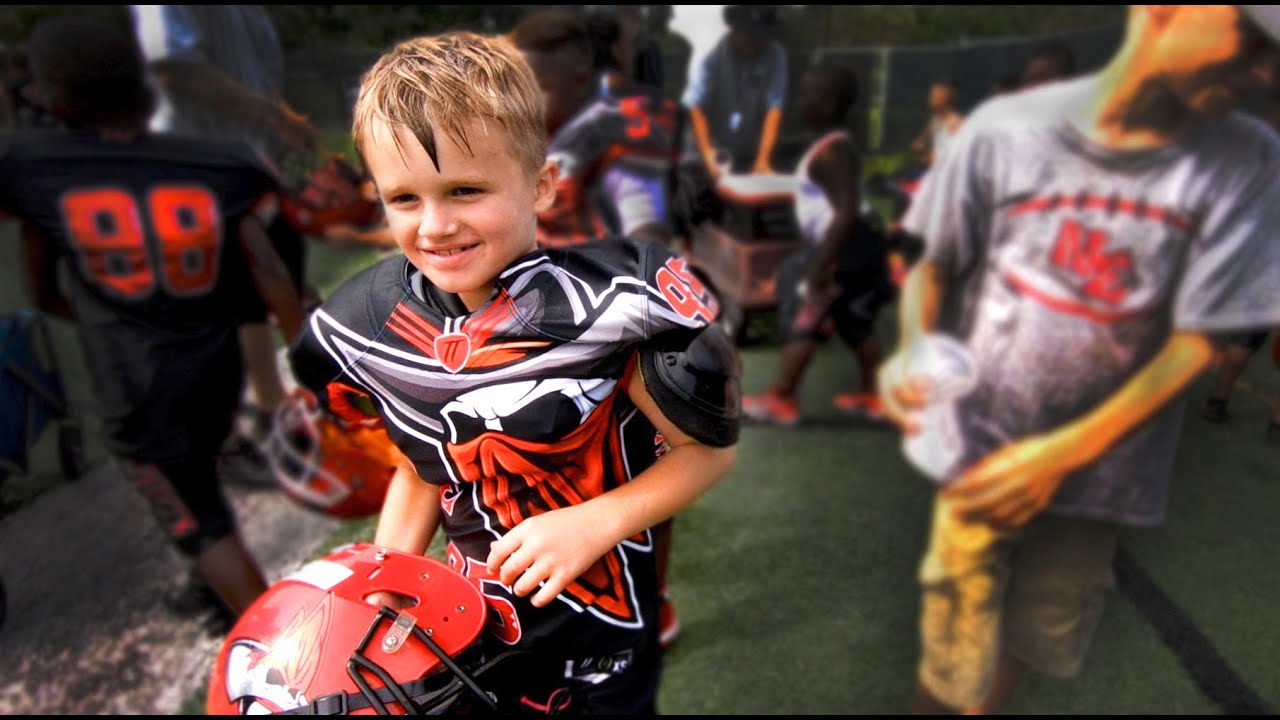Patient Story
Acute Lymphoblastic Leukemia: Logan's Story
How Logan Tackled Leukemia
Logan grew up watching his two older brothers play sports. When he finally turned 4 years old, it was his turn to show off his flag football skills, until a persistent fever stopped him from taking the field.
“He developed a fever out of nowhere,” says Debbie, Logan’s mom. “It was 106, it was 102, it would go up and down and nothing was taking it away. To me, something was going on.”
Debbie rushed her son to the Emergency Center at Johns Hopkins All Children’s Hospital, where staff ran several tests. After a few hours, a team of clinical providers walked into the room to deliver news that Logan had been diagnosed with pre B cell acute lymphoblastic leukemia (ALL).
“You’re automatically thinking the worst, and it hits you like nothing else has ever hit you in your lifetime,” Debbie says. “No bad news even comes close to hearing that word that your child has cancer.”
Logan was quickly admitted to the cancer and blood disorders unit at the hospital where he began his chemotherapy regiment and a series of outpatient visits where his family met Kelly Lawless, APRN, with the Johns Hopkins All Children’s Cancer & Blood Disorders Institute.
“Logan is full of energy and has a great spirit and he takes everything you throw at him like it’s no big deal,” Lawless says. While Logan often came into clinic with a smile on his face, Lawless admits it wasn’t easy telling him he may have to miss out on his favorite sport. “It’s definitely one of the worst parts of having to go through complications and restrictions, because you want them to have a normal life. They feel normal and want to be normal, so to tell them, ‘You can’t do this or this, but maybe next week,’ is hard.”
Missing football and missing the start of kindergarten wasn’t an option though. Logan was determined to get back in the game. “I wanted to fight so hard because I wanted to grow up smart and play football,” Logan says.
Debbie says the team at the hospital worked with Logan almost weekly to make sure he could still safely participate in the game. Even his Northeast Bandits teammates were determined to keep him motivated and on the field. In one of his last games in the 2016 season, the Bandits helped Logan score his first touchdown — they involved the rival team and set up a special play so Logan could safely make it to the goal line.
“They were just cheering him on and that gives me chills,” Debbie says. “Words can’t describe how it feels. My kid just wants to be a kid, and he’s not letting anything stop him. He’s not letting anything get in his way. I’m just proud of him.”
After 1,141 days of chemotherapy, Logan fought hard enough to make his way to ring the bell on July 5, 2019, signifying the end of treatment in the hospital’s Outpatient Care Center clinic.
Today, Logan is back on the football field with the Northeast Bandits and ready to tackle anything that comes at him.
“I don’t think there’s anything that this kid, if he puts his mind to it, he can’t do,” Debbie says. “He amazes me.”
Logan agrees.
“I’m a good player because I fight really hard, and I do the best I can do.”
Cancer and Blood Disorders Institute






